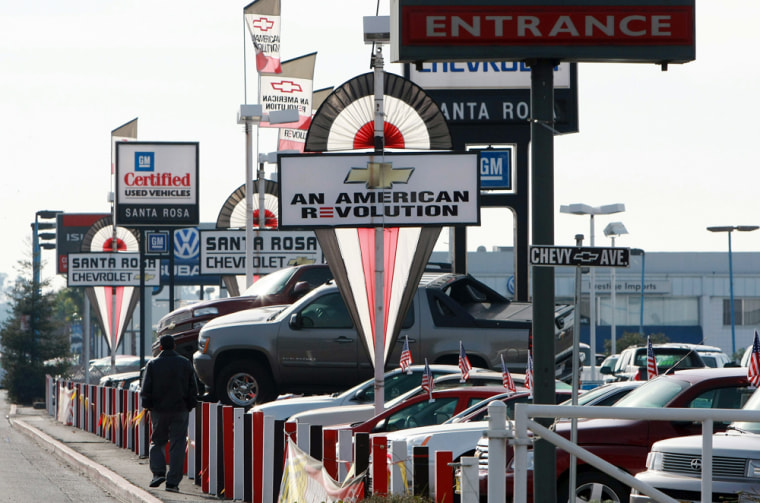As the nation’s car dealers gather at the industry’s annual convention in New Orleans this week, many, if not most, must be wondering when the moribund automotive market will come back to life.
The answer, surprisingly, could depend on the housing market. The connection may seem odd, but there is a strong correlation between home prices and vehicle sales, said Paul Taylor, chief economist for National Automobile Dealers Association.
“As goes the housing market, so goes the car sales market,” Taylor said. For most homeowners, the home represents their biggest single investment, so as the value of that investment plummets, many families are pulling back on spending.
Four states with the highest year-to-date declines in residential real estate prices — Nevada, California, Florida and Arizona — also rank among the highest percentage declines in new car registrations, according to the latest data from Polk, he said.
“It’s important that home prices stabilize before the auto sales market can make progress again,” Taylor said.
It's hard to say when that might begin to happen. The National Association of Realtors reported Monday that existing-home sales jumped last month, but prices kept falling. The median sales price of existing homes nationwide fell 15 percent last year, while prices in the West fell 31.5 percent.
“I don’t think we’re close to a bottom yet,” said Michelle Meyer, a Barclays Capital economist who sees nationwide prices falling another 15 percent this year. “We’re still very far away from a normal housing market.”
Declining home prices hurt car sales in several ways. As home prices fall, consumers suffer from a “negative wealth effect” — they feel less wealthy, which leads them to reduce their consumption of expensive items, like cars.
Homeowners also have less equity available to tap, making it difficult or impossible to get cash through a refinancing or home equity loans. That type of financing was key to auto sales at the height of the housing boom a few years ago.
Home prices in California, New York and Florida are particularly vital because they have the biggest concentration of car sales. California and Florida alone, for example, account for about 20 percent of U.S. retail vehicle sales, and so a nationwide recovery in vehicle sales would be difficult without a recover in those states, said Taylor. Home prices in Florida were falling at an annual rate of about 16 percent last year according to the latest government figures, while California prices were down 20 percent.
For U.S. car dealers, 2008 was the worst year in 26 years with sales down 18 percent to 13.2 million units, the lowest level since 1992, according to MotorIntelligence.com.
Taylor expects sales to be no higher in 2009.
When car sales do rebound, pent-up demand eventually should drive a sharp increase, said John McEleney, chairman of NADA.
“Nationally, there are about 12 million cars removed from the roads each year for scrap because of accidents and cars simply getting old, and the only way to replace them is when people get themselves a new vehicle,” he said. “Traditionally, we’ve never seen car sales go below that number and that’s where we are now, so I don’t think it we’ll stay here for long. I think we have troughed, and I think the second half of 2009 is going to look much better.”
Still, that will be too late for many of the nation’s 20,000 car dealers. An estimated 700 dealers closed their doors forever, and another 900 are expected to shut down this year, according to NADA.
While the housing market is a significant factor in the health of the automotive market, the miserable employment picture also plays a major role. The economy lost 2.6 million jobs last year as the unemployment rate shot up to 7.2 percent from 4.9 percent.
In that sense, the housing market and job market are attached at the hip, said George Pipas, Ford’s sales analyst.
“Fundamentally, it’s all about income,” he said. “As long as you have negative economic growth, you’re not likely will see any of these consumer markets beginning to recover."
Pipas said a final factor is the state of the market for credit, and he expected the hope that massive government intervention is beginning to make a difference.
“It’s still pretty frozen, but things starting to thaw,” he said. “Our view at Ford is that there is a range of outcomes as related to 2009 auto sales. This is a very uncertain time. Our view is the monetary policy that took place last year is having an effect and continuing to have an effect and ought to provide a basis for a moderate recovery in the second half of the year. If it doesn’t, we have bigger problems.”
